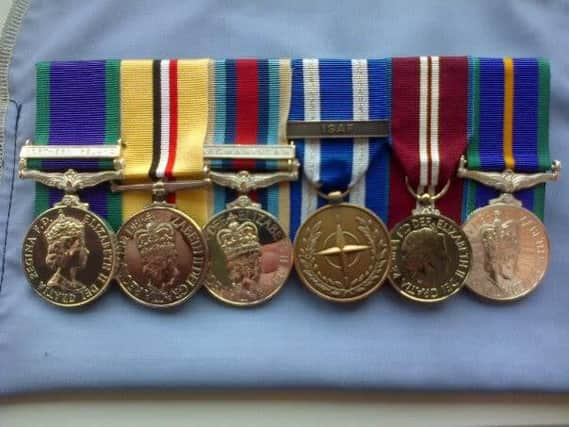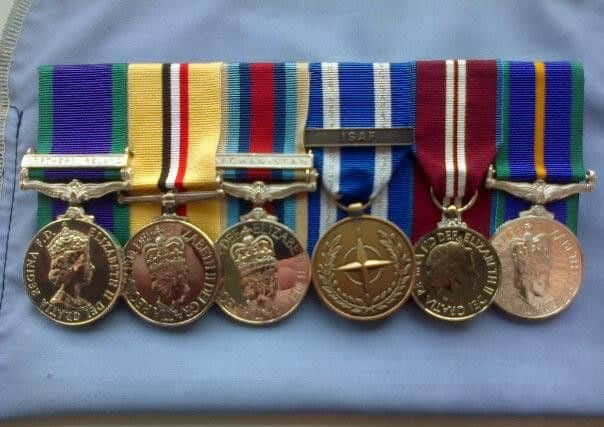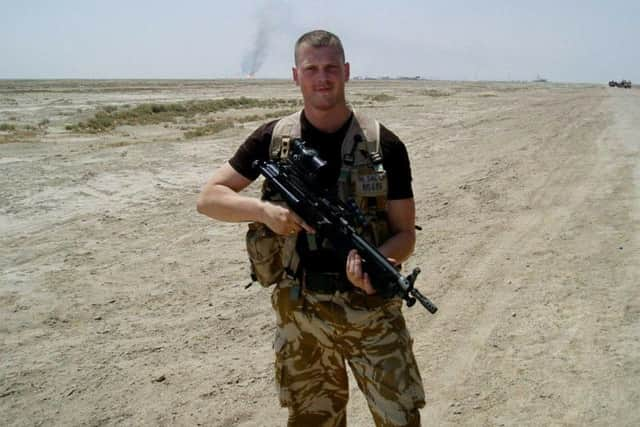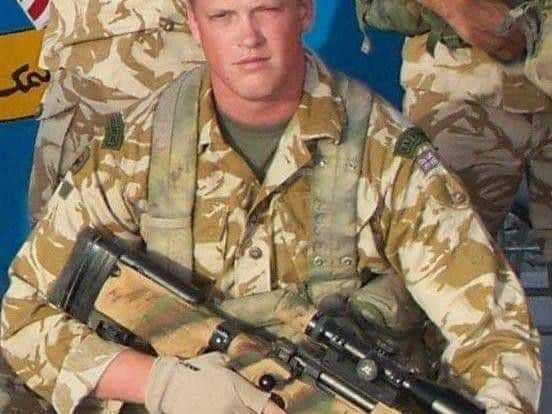Yorkshire soldier's plea over 'nightmare' battle with PTSD


-> Read more: Ex-soldier told counsellors he felt "extreme guilt" about seeing five comrades killed before his tragic death
Advertisement
Hide AdAdvertisement
Hide Ad

To the debris of an IED explosion that killed his friends. The flashbacks of war persist, seven years after the RAF veteran’s return to Yorkshire.
He has now been diagnosed with post-traumatic stress disorder, and is in the care of a new veteran’s mental health service, run by the NHS in Leeds.
Every day until this, he says, he has had to relive the terror. The despair, at having lost close comrades. And having come so close to the brink himself.
Advertisement
Hide AdAdvertisement
Hide Ad“It went on for years,” said Mr Brook, now 36, and living in Hemsworth. “It took a point where I was at complete rock bottom. My dad had to ring up and say ‘if something is not done about Adam, there is going to be another dead soldier’.


“There were three lads, from my regiment, that committed suicide that year. I was in massive despair, I didn’t really know what to do, at all.”
Camaraderie
Mr Brook, joining the RAF Regiment at the age of 20, had followed in the footsteps of his grandfather who served in the Second World War. It was about stability, and a good career.
On his first posting, to Northern Ireland, there had been a sense of camaraderie and he found it a good fit. With structure, he thrived, forging strong bonds within his regiment. Together, they served a tour in Iraq in 2006, followed by Afghanistan.
Advertisement
Hide AdAdvertisement
Hide Ad

It was a tragedy here that sparked a spiral in his mental health, when two of his friends were killed in an explosion. He was part of a team that investigated their deaths.
“I didn’t have any decompression training, I didn’t have any therapy,” he said. “Things just fizzled out.
“I wasn’t recognising the potential trauma that was affecting me on a day to day basis. Unfortunately a few months after being posted, I did attempt suicide.”
Flashbacks
Mr Brook was transferred to a mental health treatment centre, where he spent months receiving treatment. He was already showing signs of PTSD, he says, but it was dismissed as ‘adjustment disorder’.
Advertisement
Hide AdAdvertisement
Hide Ad“That made it worse. It’s now seven years on, and it’s been an absolute nightmare,” he says. “It’s affected my life for the worse, all round.”
Returning to civilian life, he had become aggressive, he says, struggling to make eye contact or relax in a busy room. He was hyper-vigilant, he couldn’t switch off, or sleep.
“I wasn’t fully sure of what was going on,” he says. “I couldn’t comprehend it. I think the term is ‘avoidance’ - I was choosing to avoid people - and I was hiding myself away.
“The smell of diesel used to send me into a flashback. I would literally go back, like I was out there again. It literally clouds over - as soon as that happens, you are back there.
Advertisement
Hide AdAdvertisement
Hide Ad“You feel the heat, you feel everything. It’s overwhelming. I would feel all this, but I would be stood in the forecourt of a petrol station. That kind of thing made me withdraw. I didn’t want to be around people, I just felt embarrassed. I felt pathetic. I didn’t know how to cope.”
Diagnosis
Mr Brook, desperate for a diagnosis or support, found himself on a seemingly endless cycle of assessments.
Until last year, with the launch of the Veterans’ Mental Health Complex Treatment Service in Leeds. Here, there are treatments, with doctors and psychiatrists, but also team exercises, group work. For Mr Brook, it has been a life-changer.
This, he adds, is the start of the path to recovery. But, he warns, there is more to come, and he firmly believes there are many more people to come forward.
Advertisement
Hide AdAdvertisement
Hide AdDespite being medically discharged, Mr Brook cannot draw a medical pension. There is a perception divide, he adds, between veterans with visible injuries, and those fighting a hidden battle.
More must be done to help them step from the shadows, he says, and build on the success of the NHS project which is making great in-roads and which is so desperately needed.
Armed Forces Day
Speaking out ahead of Armed Forces Day today, he said there must be a greater recognition of the sacrifices given, and to honour those who serve.
“A lot of people take things for granted, about the way we live, our culture,” he said.
Advertisement
Hide AdAdvertisement
Hide Ad“The only reason that the culture we have is so good is because we’ve had the armed forces, the police, the NHS, paramedics - they’re the backbone of this country.
“A lot of people forget that. It’s important, not just for current soldiers, but for all history. It’s all about freedom.”
Mental health support for veterans
The Veterans’ Mental Health Complex Treatment Service launched in April last year and has since supported 150 veterans. It anticipates this figure will rise in the next year.
Run by the Leeds and York Partnership NHS Foundation Trust in partnership with Combat Stress, it is designed to support veterans experiencing mental health difficulties related to their military service.
Advertisement
Hide AdAdvertisement
Hide AdThe service is for former forces personnel across the North of England, from South Yorkshire and Cheshire up to the Scottish Borders.
“It’s been brilliant,” said Mr Brook. “The people that I’ve worked with from day one have been easy to talk to, there’s been a bond that’s formed - I would consider them friends.
"There’s always been a plan so you have something to aim for. That’s been the main thing, to start the transition.
"I still have pretty bad days, here and there. But it’s nothing like I was a year or two ago.”